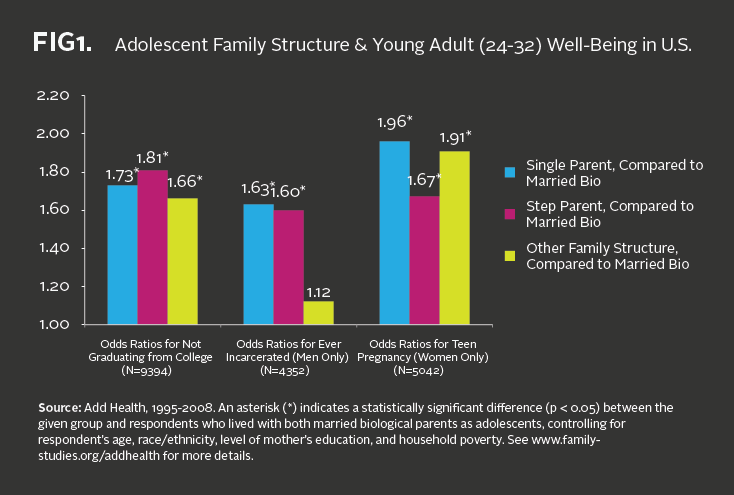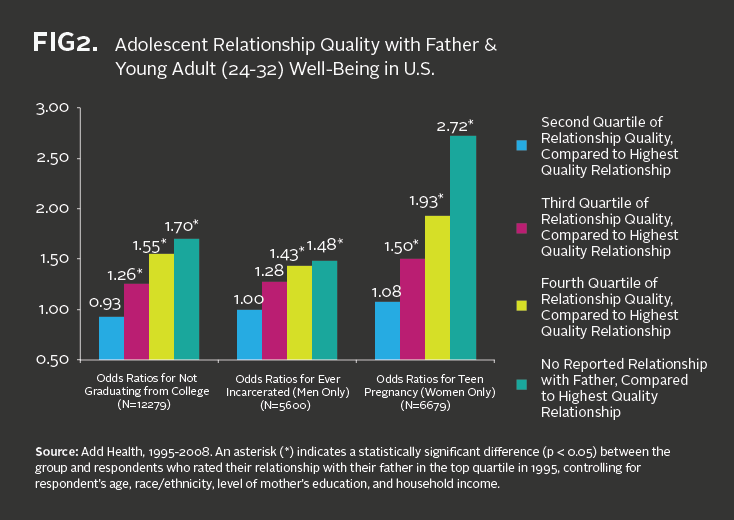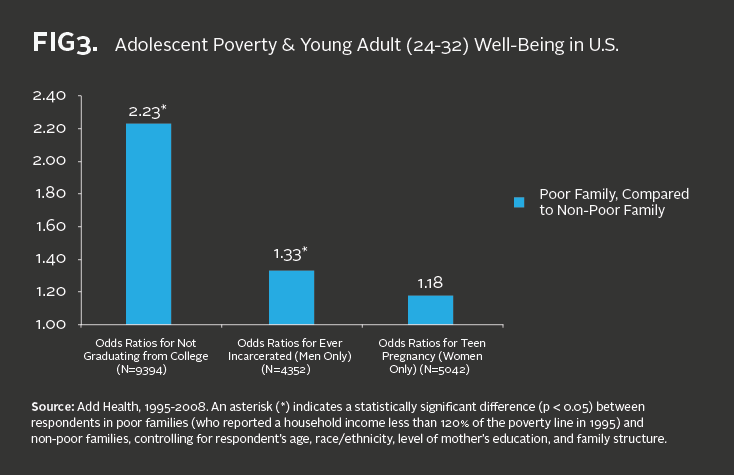Highlights
Sustainable societies depend upon strong families. Nations that seek to remain economically and politically vital must reproduce themselves; children are most likely to thrive—socially, emotionally, and economically—when they enjoy the shelter and stability of an intact, married family; marriage is most beneficial for children when both parents are positively invested in their lives; and families are most likely to flourish when they can be built upon strong economic foundations. These are the truths that inform the work of the Institute for Family Studies, a new initiative dedicated to strengthening marriage and family life, and advancing the welfare of children through research and public education.
“The strength of a nation derives from the integrity of the home.” ~ Confucius
These truths can be difficult to see at a point in history when, at least in the developed world, the market and the state have taken on dominant roles in some of the most fundamental features of family life, from the preparation of meals to the care of the dependent elderly. In our day, with so many of our immediate needs handled by the market and state, our collective and individual dependence upon strong families is often obscured. Nevertheless, across most of the globe, four truths stand out about the reciprocal relationship between the strength of the family and the welfare of children, adults, and nations:
- Fertility. Nations depend in part upon fertility rates that do not dip markedly below the replacement fertility rate—about 2.1 children per woman—to sustain their long-term economic and political welfare. That’s because a prolonged period of low fertility typically drives the population of working-age adults down, leaving nations without an adequate supply of workers to sustain high levels of growth and enough taxpayers to support the dependent elderly. Dramatic declines in the working-age population can imperil the economic and fiscal health of contemporary nations. In much of East Asia and Europe, for instance, long-term low fertility means the workforce is declining, the ranks of the dependent elderly are rising, and even drastic increases in immigration would not come close to stabilizing the national population. Japan and Germany are both poised to see their working-age population fall by about 15 percent between now and 2030, even as their elderly populations surge. These demographic trends “portend ominous change in [their] economic prospects: major increases in public debt burdens, and slower economic growth,” according to political economists Nicholas Eberstadt and Hans Groth. Thus, nations that aim to sustain viable welfare states and robust economic growth must maintain fertility rates high enough to avoid the population declines now facing much of East Asia and Europe.
- Family structure. Children, particularly in the developed world, are most likely to thrive and to acquire the human capital they need to succeed in a competitive global economy when they are raised in a stable, two-parent family. Such families are most likely to be forged in marriage; that’s because the institution of marriage tends to endow family life with a distinctive meaning, security, and stability. Indeed, in countries as divergent as Sweden and the United States, children born to married parents are markedly more likely to see their parents remain together. This is important, as sociologist Andrew Cherlin has noted, because children do better when they enjoy stable routines with stable caregivers. Indeed, Figure 1 shows that children in the United States are significantly more likely to move into adulthood without a college degree, land in prison, or have a teen pregnancy if they are raised outside of an intact, married family. For instance, teenage boys from single- and step-parent families were at least 60 percent more likely to have spent some time in prison later in life, and teenage girls from single- and step-parent families were at least 67 percent more likely to end up pregnant, compared to their peers from intact, married families. Likewise, teens from non-intact homes were at least 66 percent more likely to have entered adulthood without a college degree. Similar patterns can be found even in countries with much stronger safety nets than the U.S., such as Sweden. For instance, one study of the entire population of Swedish children found that children in single-parent families were about twice as likely as children in two-parent families to suffer from psychiatric problems, to attempt suicide, or to be addicted to drugs and alcohol. In general, then, evidence from the developed world suggests that children are most likely to flourish economically, socially, and emotionally when they are raised in an intact, two-parent family, a family structure that is most likely to be forged within the shelter and stability afforded by the institution of marriage.

- Family process. Family structure is not the only determinant of child well-being. Children are more likely to thrive in families where they receive substantial amounts of attention and affection, and requisite levels of structure and discipline, from their parents and other kin. And to be clear: the evidence suggests that children can enjoy such a high-quality family life in a range of family structures. Nevertheless, at least in the developed world, they seem most likely to enjoy such relationships in married families. Moreover, marriage seems to matter most, for both families and nations, when both parents are invested, practically and emotionally, in the lives of children. Because most mothers invest deeply in their children’s lives, another way of stating this is that children do best when dads also invest heavily in their lives. As Figure 2 indicates, children in the United States are significantly less likely to flourish in families when they do not enjoy high-quality relationships with their fathers. For example, adolescents who reported the lowest-quality relationship or no relationship with their father were at least 55 percent more likely not to have graduated from college, 43 percent more likely to have been incarcerated at some point (if male), and 93 percent more likely to have had a teen pregnancy (if female), compared to their peers who reported the highest-quality relationship with their fathers. Furthermore, at the country level, the value of the married, two-parent family appears to be contingent, at least for some outcomes, on the strength of norms related to male familial involvement. Demographers Cynthia Lloyd and Ann Blanc have found that children in some developing countries are more likely to flourish educationally in homes without fathers, probably because female-headed families in these countries “are more likely to invest resources, including time, money, and emotional support, in facilitating the education of children living in their household” than are male-headed families. Thus, the value of the intact, married family would appear to depend on the norm that fathers devote themselves—practically, financially, and emotionally—to their children.

- Money. When it comes to family life, money matters. Families who lack a strong economic foundation are more likely to flounder. Poverty, unemployment, and other forms of material deprivation mean that parents may not be able to supply their children with life’s basic necessities, from decent housing to a good education. On top of that, material want often exacts a psychic toll that can be as debilitating as any purely material deprivation for parent-child relationships, marriages, and family life in general. The cumulative, negative impacts of poverty on children are enormous. Figure 3 is indicative of the toll that poverty can take on children in the U.S. Children from families living under 120 percent of the poverty line in the United States are significantly more likely to end up in jail or without a college education. Teenagers from poor families were 123 percent more likely to fail to graduate from college and 33 percent more likely to have spent time in prison (if male) than their peers from intact, married homes.

And around the globe, material deprivation is a major predictor of child stunting, educational failure, divorce, and single parenthood, among other things. Across the world, then, poverty poses a real threat to the quality of family life and the welfare of children. To put it another way: families are more likely to flourish when they have a strong economic foundation that ensures they have the basic necessities of life.
It is an awkward moment to propose these truths about family and nation. In the developed world, we face an increasingly post-familist future, where, in Joel Kotkin’s words, the “family no longer serves as the central organizing feature of society.” Rates of childlessness, singledom, family inequality, and family instability are on the rise in many countries in East Asia, Europe, and the Americas. To be sure, the family changes of the last half-century have been accompanied by real progress in other areas, especially in the opportunities opened up to women. And, for some, as ethicist Jean Bethke Elshtain noted, the family has been the site of “systematic humiliation, apathy-inducing neglect, and soul-killing cruelty.”
But flawed as they can be, families still play a vital role in determining the welfare of children, in meeting adults’ deepest needs for meaning and solidarity, and in shaping the economic and political fortunes of nations. This is because, as Elshtain reminded us, “Families nurture us, care for us, mold us, or damage us, and send us out into the world either well or ill equipped for its complexities.” This, then, is why the Institute for Family Studies is dedicated to studying the strength, quality, and stability of family life, both in the United States and around the globe.














